Entertainment
10 alternative Christmas movies to watch this Christmas
10 alternative Christmas movies to watch this Christmas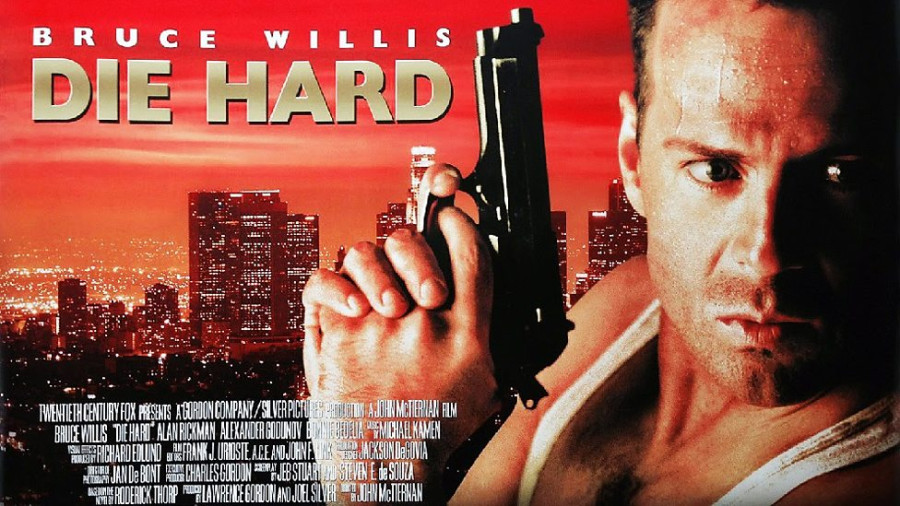
BBC
Brazil, 1985
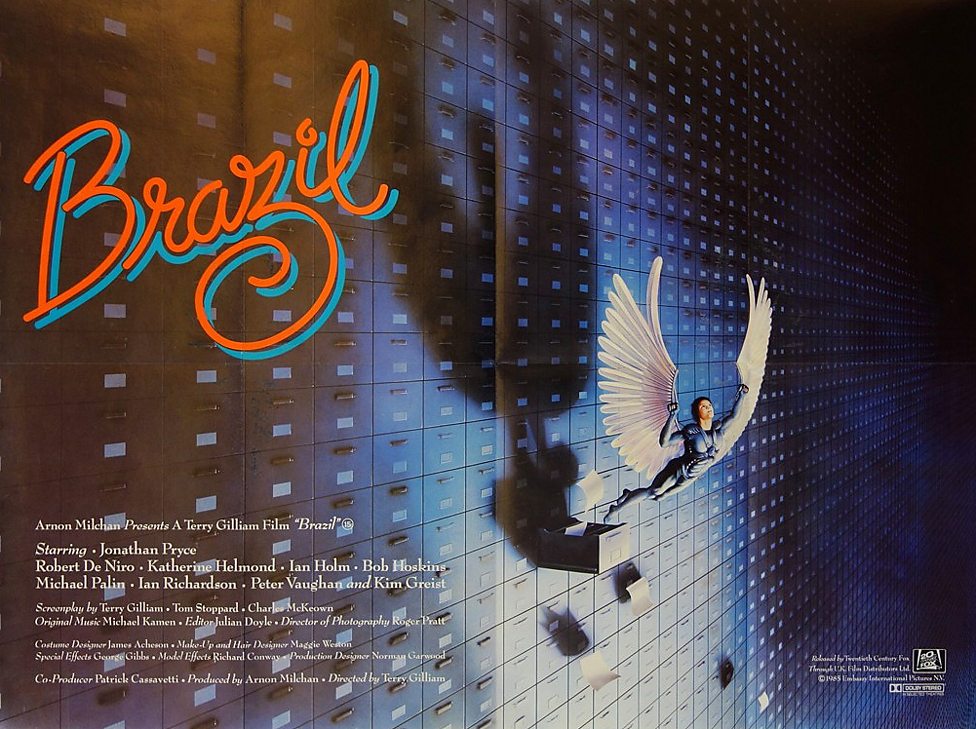
If you thought Christmas with the family was a nightmare, welcome to Terry Gilliam’s dystopian cult classic. In Brazil, Christmas is but a handy backdrop for exploring ideas of rampant consumerism, bureaucracy, terrorism, alienation and the role of the totalitarian state.
For lowly bureaucrat Sam Lowry (Jonathan Pryce) the only escape from the Kafkaesque government whose mistakes lead to torture and death is the liberty of insanity. Look out for the banner-carrying ‘Consumers for Christ’ who pass by as a small child asks Santa for a credit card.
Humorous and absurdist, it’s a reflection of Britain in the mid-eighties; mired in unemployment, downcast and downbeat, with Yuppie greed on the rise amid the threat of IRA bombs.
The Apartment, 1960
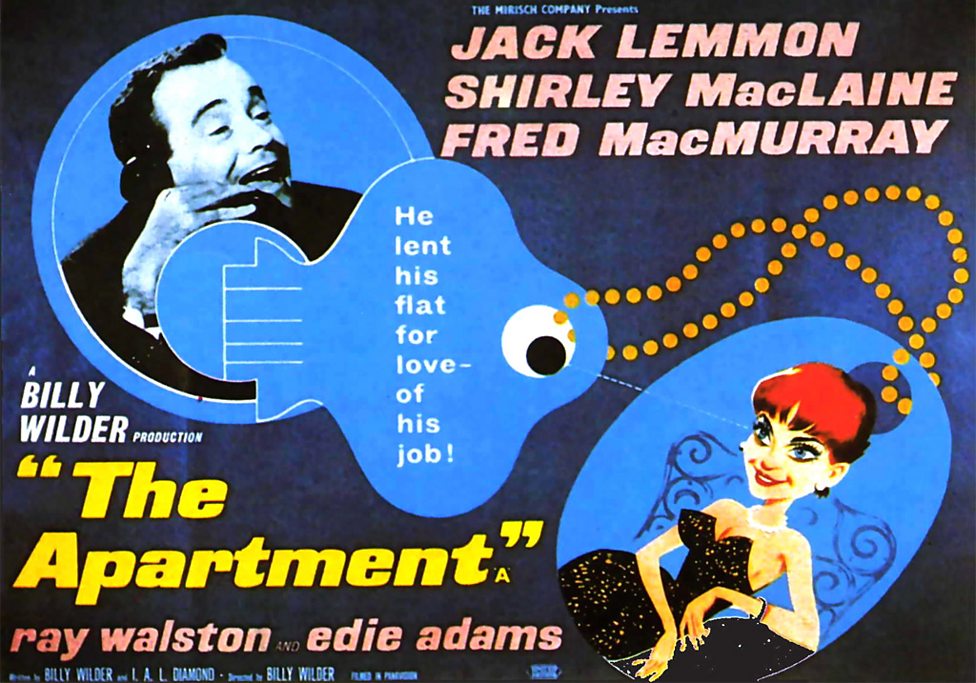
Director Billy Wilder’s film is a bitter-sweet love story about a gullible nice guy, played by Jack Lemmon, who loans out his flat to his boss on a nightly basis for hanky-panky with his mistress.
CC Baxter (Lemmon) allows himself to be manipulated by personnel director Jeff D Sheldrake (Fred McMurray) who then promotes him for his trouble.
Baxter is unaware that his unrequited love, lift-girl Fran Kubelik (Shirley MacLaine) is Sheldrake’s secret lover. When Sheldrake’s serial philandering is revealed at the office Christmas party, Baxter is then left to deal with Kubelik's attempted suicide over Sheldrake.
There are a couple of sources for the film’s storyline. Initially, Wilder remembered the friend who lent his flat to Celia Johnson and Trevor Howard’s characters in Brief Encounter (1945).
But the scandal of eminent Hollywood agent Jennings Lang, who was shot by producer Walter Wanger in the groin (Wanger pleaded insanity) for conducting an affair with his wife in an underling’s apartment, is probably the key source.
Lethal Weapon, 1987
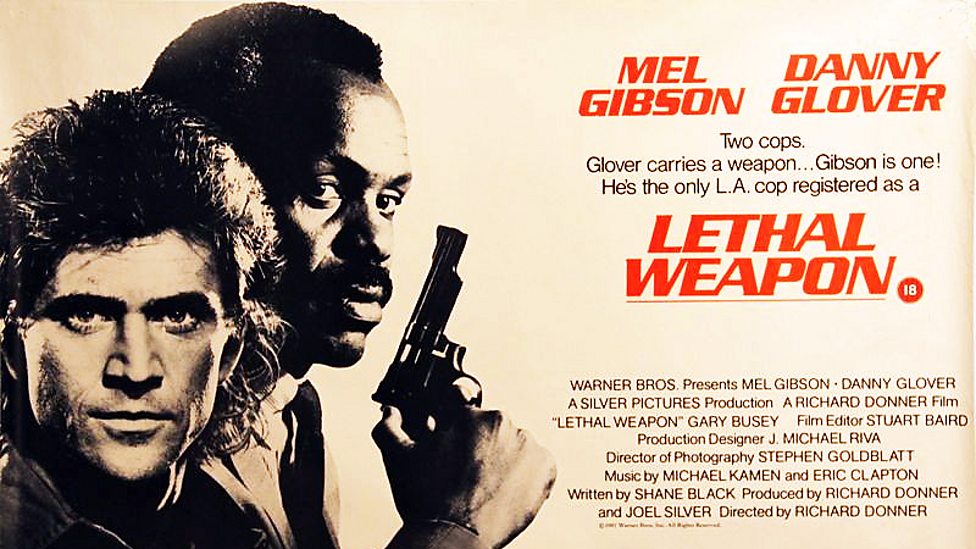
Loneliness, grief and drugs - sounds like a typical Christmas wallowing in self-pity. Written by Shane Black and Directed by Richard Donner, in characteristic Black fashion it’s a buddy movie about two cops.
One is the suicidal and unpredictable Riggs (Mel Gibson) and the other Murtaugh (Danny Glover) a near retirement family man. They are reluctantly paired to solve the murder of Riggs friend’s daughter.
With typical fast paced, witty dialogue and set pieces, Black and Donner open the film with a naked prostitute jumping from a high-rise, powered by Drano-laced cocaine – all to the tune of Jingle Bell Rock.
On the surface it’s all guns and explosions, but there’s emotional power in the potential suicide of Riggs and the redemptive nature of the buddy relationship.
There is chat that Fox will produce a TV pilot based on the characters next year.
Batman Returns, 1992
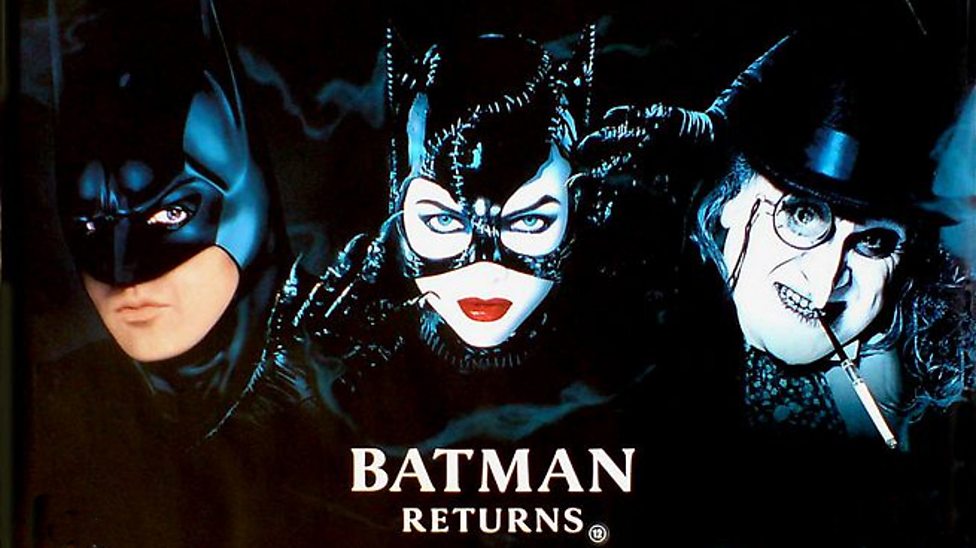
A child (Oswald Cobblepot) is abandoned by his parents in the snow - what could be more anti-nativity?
Thus begins the film and the back story of wannabe mayor Cobblepot aka the Penguin (Danny Devito), who intends to team up with Max Shreck (Christopher Walken) to take over Gotham city. Shreck, referred to as ‘Gotham’s own Santa Claus’, is a corrupt store owner and industrialist with a penchant for gift-giving … and murder.
The Christmas setting - a time for family and friends - only heightens the feelings of alienation and loneliness of the film’s central characters Batman, Penguin and Catwoman. There is no loving resolution.
In the second of Tim Burton’s expertly-cast forays into the life of the caped crusader, the style reeks of German Expressionism and the Halloween grotesquerie that Burton would revisit in The Nightmare Before Christmas the following year. Walken’s character is named after the actor who played Count Orlok in the silent, Dracula-inspired classic, Nosferatu (FW Murnau, 1922).
The Shop Around the Corner, 1940
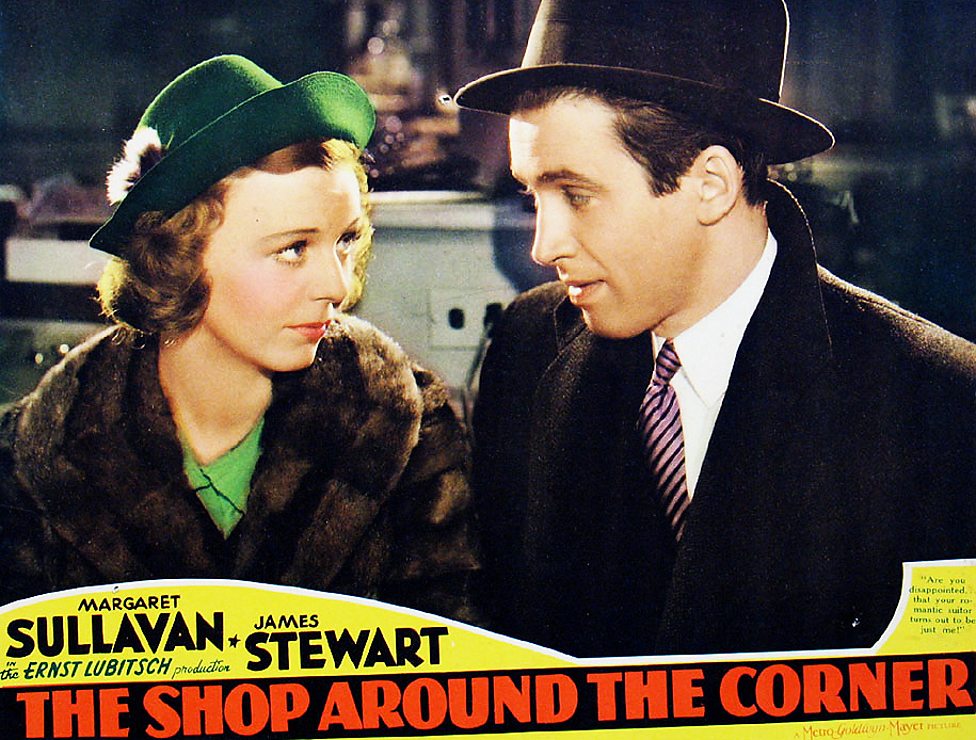
An acerbic tale of adultery, betrayal, shame, loneliness and attempted suicide – all carefully wrapped in a blanket of comedy.
Directed by Ernst Lubitsch and set in the Matuscheck & Co store in Budapest during the Christmas sales, the film revolves around two warring colleagues played by Margaret Sullavan and perennial Christmas favourite James Stewart, who unwittingly fall in love as pen pals.
There is an indefinable quality known as ‘the Lubitsch touch’. With his sophisticated sex comedies there’s no lust, but for this prickly love story it’s Lubitsch’s mastery of comic timing, and his empathy for the characters and their foibles, that endures well after the credits roll.
And, if you recognise these elements, the film was remade (badly) in You’ve Got Mail (1998). Shame, shame on you Tom Hanks and Meg Ryan.
In Bruges, 2008
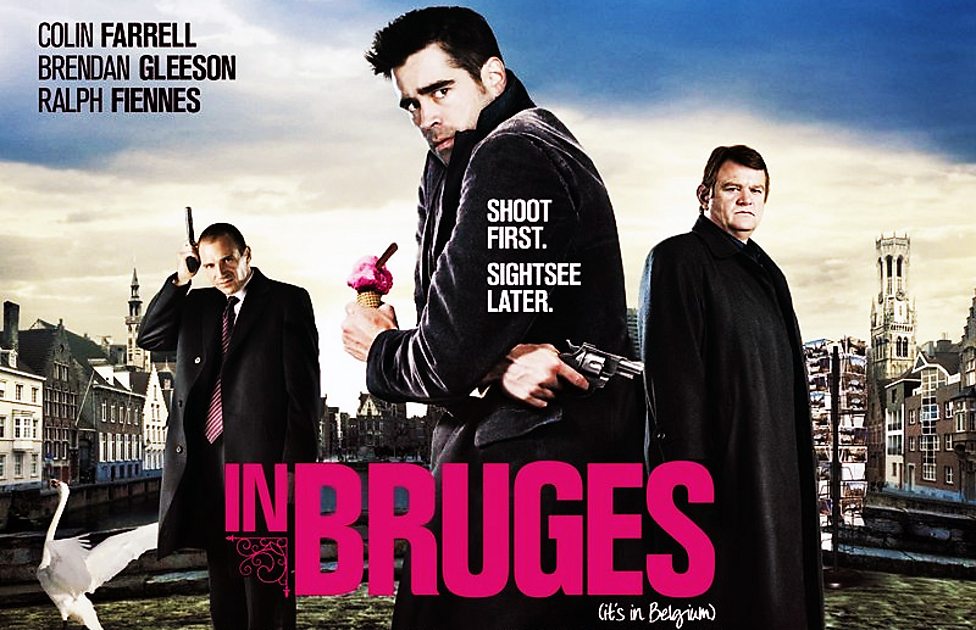
Morality and a redemption of sorts; that’s what Martin McDonagh’s film offers, even if the morality is a little twisted and the comedy is as black as it comes.
Ray (Colin Farrell) and Ken (Brendan Gleeson) are a couple of hitmen sent to Bruges by their boss when a hit on a priest goes awry and a child is accidentally killed. What you have are two men out of place and possibly out of time.
It’s Vladimir and Estragon on the run – waiting for the call from their boss Harry (Ralph Fiennes) to sort out what happens next. There’s not much Christmas spirit here, and what little there is only serves to infuriate the two men trapped in the beautiful Belgian town.
It’s an off kilter morality play, full of remorse and governed by a strange code of honour. Sounds a lot like Christmas itself.
Die Hard, 1988
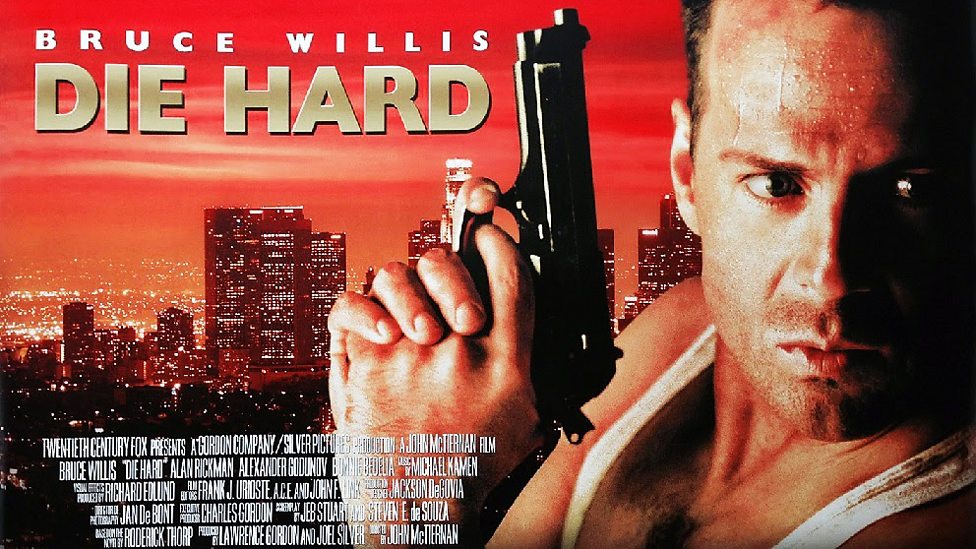
Arguably the best action movie ever made. Debate rages as to whether Die Hard is the best Christmas film ever, or if it’s even a Christmas film at all.
It’s set at Christmas but not actually about it. Yes, there are Yuletide elements: seasonally-adjusted music, a Santa’s hat, some Christmas decorations and there’s even some merrymaking, but this is a heist-gone-wrong movie.
Set in Los Angeles during a Christmas party at the Nakatomi Corporation, fish-out-of-water New York cop John McClane (Bruce Willis) has an estranged wife he needs to rescue and an awful lot of air conditioning vents to crawl through.
He is also wearing a vest, which slowly changes from white to black before being removed entirely. This obviously metaphorically charts his spiral into darkness before finding ultimate redemption.
Add über Euro-villain Hans Gruber (Alan Rickman) with his Teutonic minions and let the one liners zing and the bullets fly. Orgiastic explosions then take you a world away from granny’s post-turkey snoring. There is no subtext. It’s just one man battling the odds over the Christmas period.
At 73 years old, Frank Sinatra was offered the role of John McClane for contractual reasons. The film was based on the book Nothing Lasts for Ever by Roderick Thorp, which is a sequel to The Detective in which Sinatra starred in 1968. But Sinatra in a vest would just have been wrong.
Eyes Wide Shut, 1998
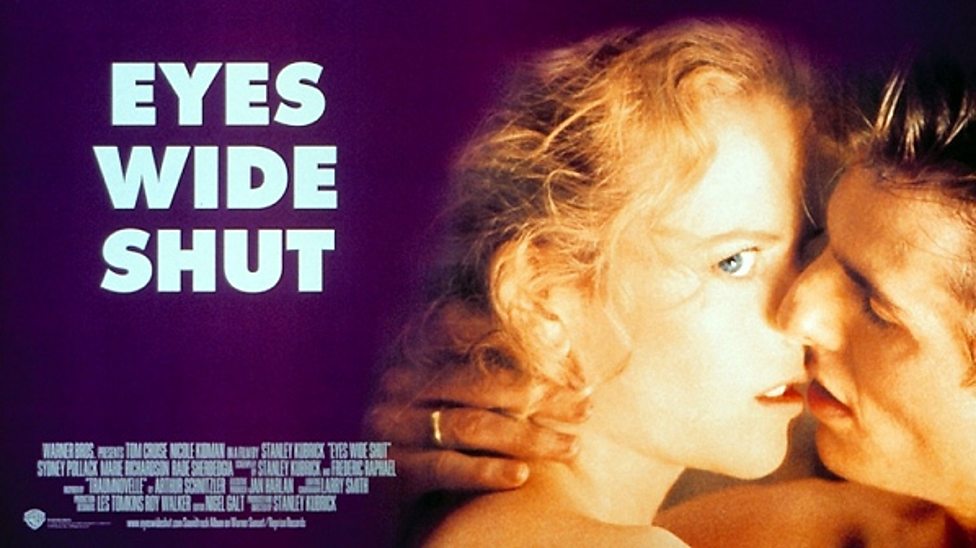
Christmas is a time for giving Ferrero Rocher, which director Stanley Kubrick seems to have taken to heart, as the film opens with his sumptuous recreation of the Ambassador’s party, as featured in the laughable commercial for gold-wrapped chocolates.
Made over a notorious 15 month shoot, the movie brought together husband and wife Tom Cruise and Nicole Kidman in a tale of marriage, fidelity, sex and fantasy.
Christmas lights may have offered the soft, practical lighting that Kubrick wanted for the shoot in order to reinforce a dreamlike world, but transplanting the story from 1900s Vienna - as in Arthur Schnitzler’s original novella - to Christmas in contemporary New York, lost much in atmosphere.
Kubrick errs on the pagan side with his set piece Saturnalian, ritualistic parties, which is rather un-Christian. But as one joker observed, desire, much like Christmas, offers more than it delivers.
Kiss Kiss Bang Bang, 2005
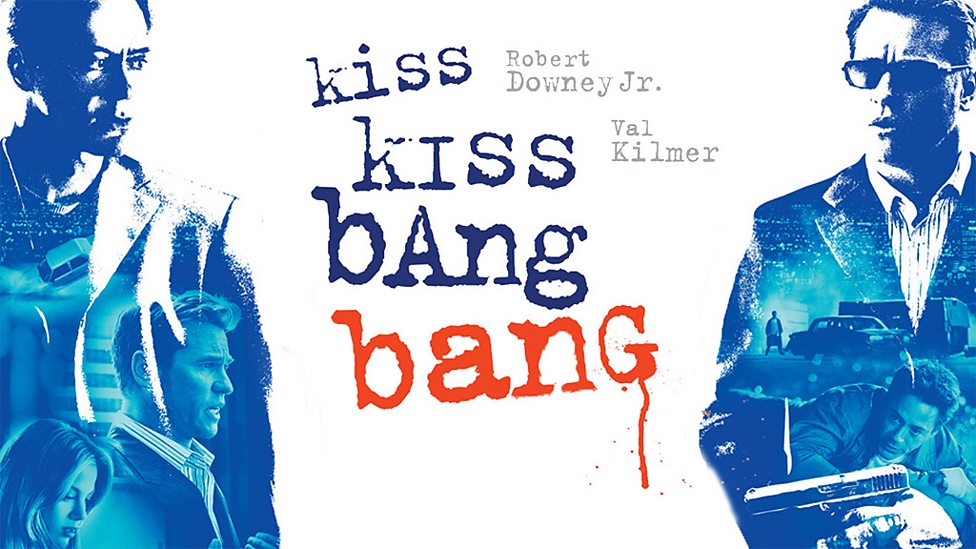
The title doesn’t refer to the family welcome at the door and the sharing of crackers at the Christmas table. It reflects the film’s noir territory and the pulp novels on which writer/director Shane Black spent his lunch money at school.
Robert Downey Jr. (as part of his post-drugs renaissance) stars as thief Harry Lockhart and Val Kilmer as ‘Gay’ Perry. Lockhart accidentally stumbles into a film audition after escaping a botched robbery and nails the role. He is then whisked off to Hollywood by Perry to be prepped for his new role as a detective.
Typically self-referential, especially in Lockhart’s voiceover, Black’s witty dialogue fits Downey Jr. and Kilmer well as the reluctant buddies. Mishaps, misunderstandings and murder result while Christmas provides the backdrop to the action.
Trading Places, 1983
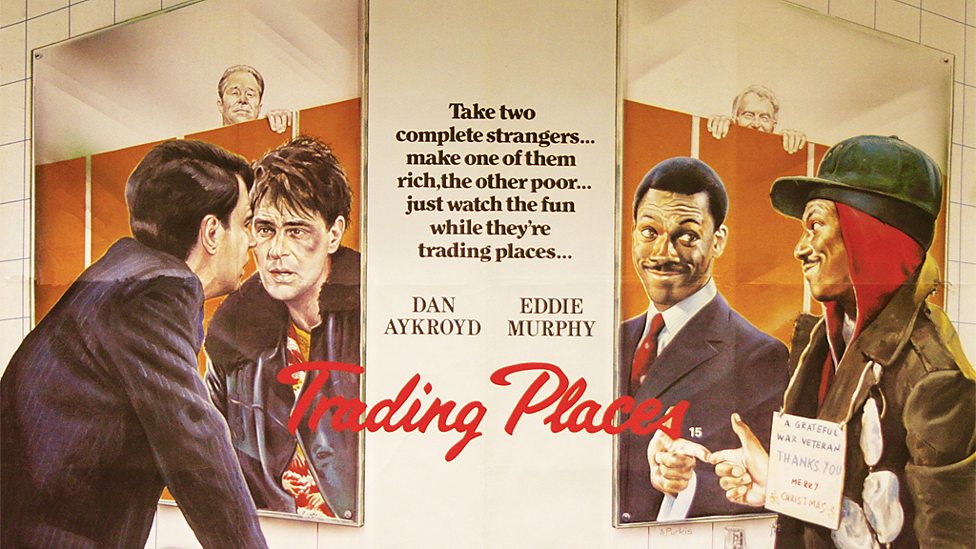
A cruel $1 gamble on the Nurture versus Nature debate drives this life swap comic drama about greed and class.
The film has the feel of a 1940’s Screwball comedy and it even features Forties acting stalwarts Don Ameche and Ralph Bellamy as a couple of morally reprehensible commodity dealer brothers, the Dukes, who adopt rival views on the wager.
There’s real bite to the characters in this twist on Mark Twain’s The Prince and the Pauper. The Dukes ensure that Dan Ackroyd, as the snotty Louis Winthorpe III, falls from grace (his bad Santa predates Billy Bob Thornton’s by twenty years) and have him replaced at the company by Eddie Murphy’s street hustler Billy Ray Valentine. Both are aided by the tart with a heart Ophelia (Jamie Lee Curtis) and butler Denholm Elliot, who steals every scene.
More than just a commentary on the avarice of Wall Street, it’s a reminder that it’s the relationships we nurture which inform our lives.




 17.12°C Kathmandu
17.12°C Kathmandu









